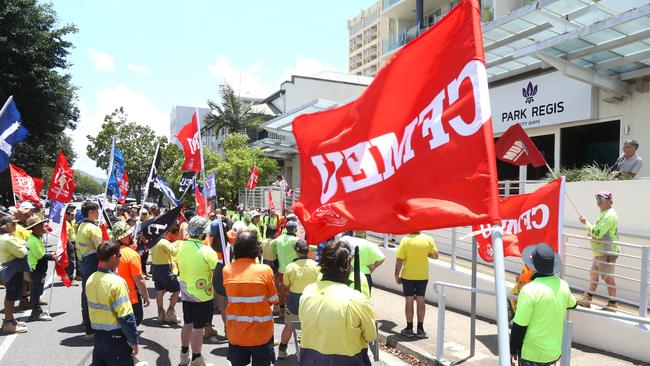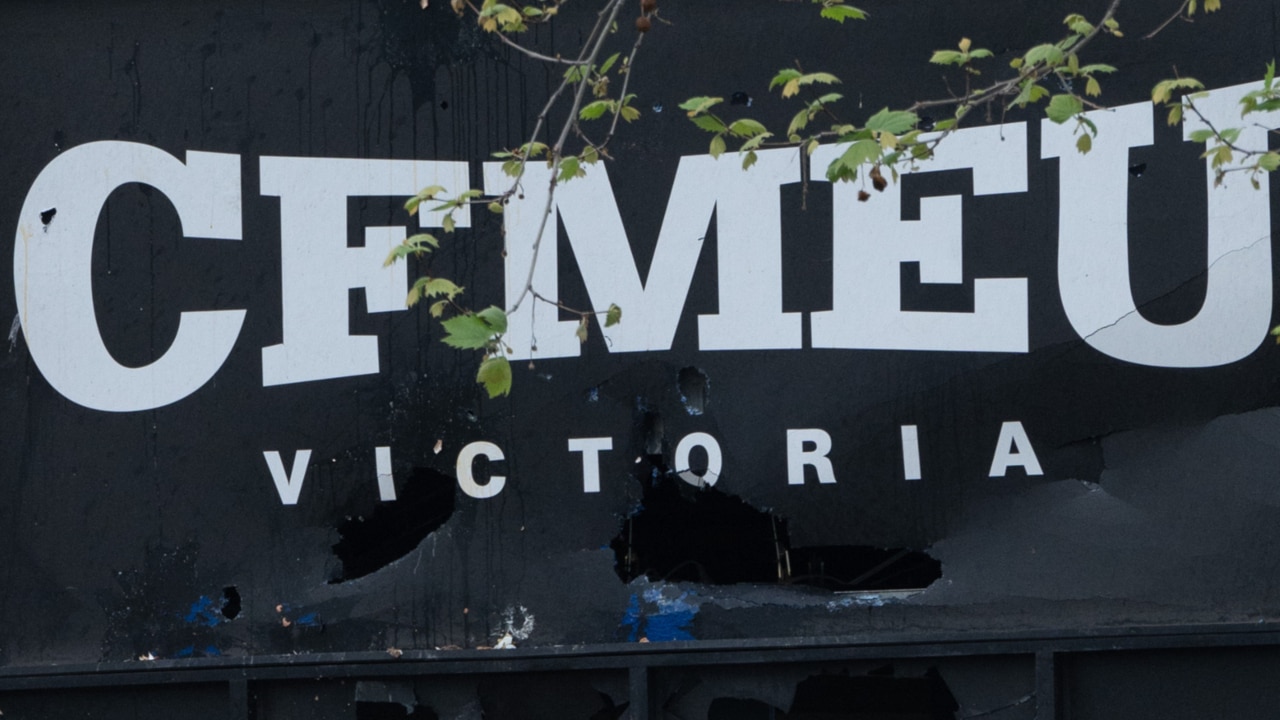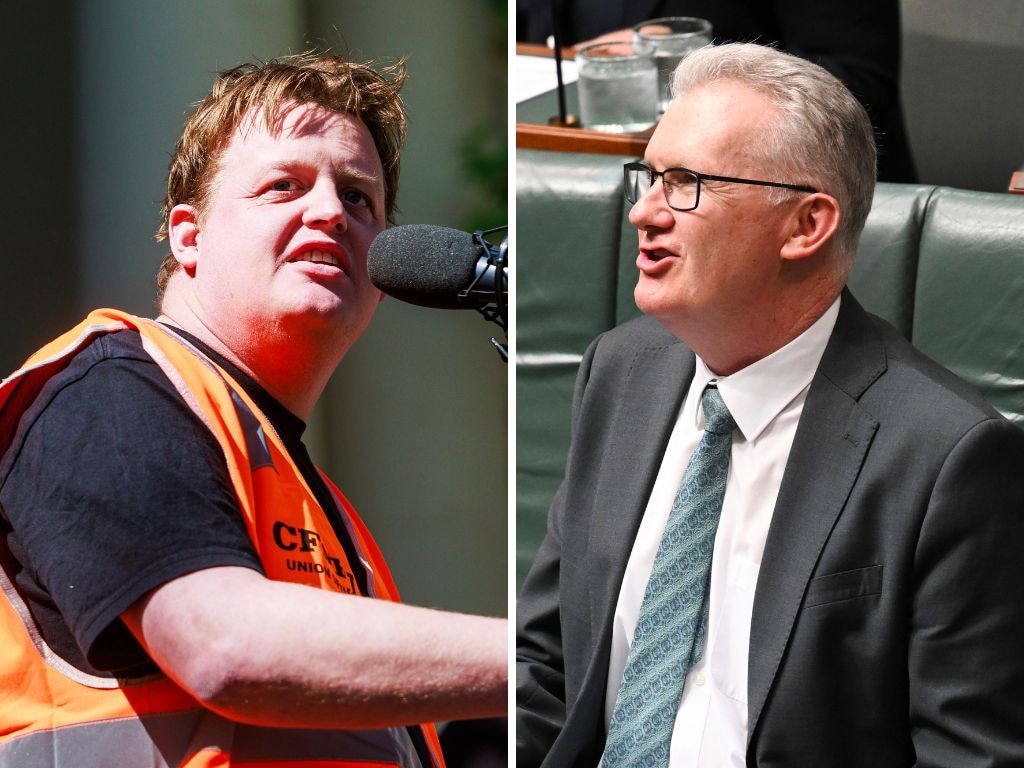
Queensland has a rare opportunity to transform Australia’s organised crime-ridden commercial building industry. If Premier David Crisafulli is able to take the opportunity not only will he be able to build a world-class Olympic stadium and other Olympic facilities in Brisbane at an affordable cost but he will show the way for the rest of the nation – including Victoria and NSW – to transform.
To his great credit Anthony Albanese has taken a first step by appointing an administrator to the organised crime-linked CFMEU.
But, on its own, that step will be useless because, as I explained yesterday, the organised crime people are already returning to the building sites. At best it’s business as usual in Victoria and Queensland. It may get much worse.
The Prime Minister’s action must be followed by further steps.
The person who knows more about what went wrong in the building industry than anyone else is the former head of the Australian Building and Construction Commission (ABCC), Nigel Hadgkiss. Not surprisingly he is hated by the CFMEU.
In a remarkable address to the HR Nicholls Society, Hadgkiss detailed the achievements and failures of the ABCC, which has been abandoned by the Albanese government.
Most in the audience expected Hadgkiss to strongly recommend that any future Coalition government restore the ABCC.

Instead he used his experience to recommend the introduction of state and federal building codes that would effectively give the managers of building companies responsibility for what takes place on their building sites.
The Hadgkiss recommendation to the HR Nicholls society caused me to look more closely at what happened to previous code attempts by the federal government and states such as Victoria and Queensland.
Between 1996 and 2007 the Howard government introduced a code that required builders on contracts that involved federal government money to make sure their sites did not allow compulsory unionism and other bad practices. The penalty for code breaches was being banned from all other commonwealth government tenders.
At that stage organised crime, as we now understand it, was in its infancy, and while the code did improve building practices, given that most contracts involved state governments, it had limited impact.
Ted Baillieu became Liberal premier of Victoria in 2010 before resigning in 2013. He saw all the forces that were later to ravage Victorian building costs had begun to germinate.
Baillieu introduced a detailed code of conduct on building sites that stipulated that any builder who allowed their project to breach that code could be removed from the tender and precluded from further state work.
The builders became the “building police”.
The builders hated it because the smart ones know how to make money in the midst of turmoil. But the threat of being unable to tender for government work its objective. Companies very quickly appointed managers who could implement the code.
Profits in some building contractors may have fallen but contracts began to be completed ahead of time and on budget. NSW also had a code but it was not as strong.
In 2012 Campbell Newman became premier of Queensland.
He was alerted to the success of Baillieu in Victoria in bringing the building industry under control.
Accordingly, he duplicated the Victorian code in Queensland but, just as in Victoria, the building contractors hated it because it reduced their profits and required management changes.
The unions encouraged them to oppose it. Newman was in the process of substantially reducing the public service and making other major changes. He was not popular in the public service, so unsurprisingly they did not push the code hard.
And at that time the seeds of organised crime and other forces that were to make Brisbane the most expensive Australian city in which to build commercial buildings and infrastructure had been planted but not germinated.
The premier did not push hard enough so the code was not properly implemented and, of course, once the ALP came to power it was abandoned.
In Victoria Daniel Andrews became premier in 2013 and spent $1bn cancelling a freeway contract which had been written by the defeated Coalition government, using the rules set out on the code.
Almost certainly (subject to Covid) it would have been delivered on time and on budget.
Andrews abandoned the code and the CFMEU took control of building and infrastructure sites. As a result every major infrastructure project in Victoria’s has had enormous cost overruns as organised crime bikies and sometimes drug dealers took control.
But again, clever building contractors knew how to make big money in that environment. Any attempt to reintroduce a code into Queensland will be met with furious opposition from highly profitable building groups and the public service which, like the builders, would need to develop new skills. But Victoria found that the building companies adapted very quickly once they knew the rules.
To underline David Crisafulli’s problem, Hadgkiss reveals that site managers were reluctant to help the ABCC achieve convictions, so he had to order them to give evidence.
Some would argue the managers in Queensland and Victoria were simply too frightened of the organised crime figures on their building sites to give evidence.
Others believe the building contractors were making too much money. The answer is probably a combination.
Hadgkiss revealed the total fines for breaking the law on building sites, particularly in Queensland and Victoria, was $19m. He believes the ABCC at least curbed bad activities but the fines are painful for union members.
What he didn’t say was that $19m was a bad day’s takings in the organised crime rings of Queensland, Victoria and NSW.





